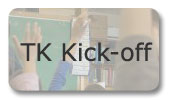FOR IMMEDIATE RELEASE
March 26, 2008
For More Information, Contact:
Sarah Mason (916) 651-4011
SACRAMENTO – After reviewing 429 bill ideas from within and outside of his district, State Senator Joe Simitian (D-Palo Alto) today announced three winners in this year’s “There Oughta Be A Law” contest.
The annual competition invites Californians to submit ideas for new state legislation. This marks the seventh year for Simitian’s contest. During the past six years, eleven winning entries have been signed into law. “The contest is proof positive that one person can make a difference,” said Simitian.
The first winning entry tackles a local controversy with statewide ramifications –– “trees versus solar energy”, and a state law on the books for the past three decades. The second winning entry addresses deceptive sweepstakes practices, particularly those targeting the elderly. The third proposal is designed to ensure that California veterans returning from the wars in Iraq and Afghanistan are properly screened for traumatic brain injury (TBI), a condition estimated to affect as many as one in five returning veterans.
Trees vs. Solar: Striking a Balance – (SB 1399) – Richard Treanor and Carolynn Bissett
Richard Treanor and Carolynn Bissett of Sunnyvale consider themselves environmentalists, tree lovers and good neighbors. They’re disillusioned, however, after an existing state law has forced them to chop off the tops of the redwood trees in their back yard, cost them more than $35,000 in legal fees and resulted in criminal prosecution. The Sunnyvale couple ran afoul of a 1978 state law which provides criminal penalties for homeowners whose trees cast shade on their neighbor’s solar panels.
“We’re grateful that Senator Simitian is addressing the inequities of the California Solar Shade Control Act. I understand that people who invest tens of thousands of dollars in home solar systems need to be protected. However, when solar systems are installed causing obvious conflict with existing trees, it defies logic to then subject people to criminal prosecution who legally and innocently planted those trees. This legislation will help the solar power industry in the long run by respecting everyone’s interests, and getting people to interact constructively and arrive at solutions as good neighbors”, Treanor said.
SB 1399 strikes a balance between trees and solar, and provides a clear exemption from the law for pre-existing trees. “Right now,” said Simitian, “a new neighbor can move in next to your home, install a solar energy system, and then –– under threat of criminal prosecution –– force you to take an ax to your trees if and when they grow.” Simitian called the existing law, “well intended, but overreaching.” SB 1399 will also clarify existing provisions of the law which are vague or confusing. “The first rule of fairness,” said Simitian, “is that you shouldn’t be prosecuted for violating a law that’s not clear about what you can and cannot do.”
Both Simitian and his contest winners say that they too want to protect the rights of homeowners with solar panels, but they want to do it in a way that’s fair to everyone. “That’s why we entered the contest,” said Treanor. “There has to be a way to protect solar installations without making criminals out of neighbors with trees.” As Simitian notes, “Trees grow. That’s what they do.”
Simitian, who is Chair of the Senate Environmental Quality Committee, said, “These two folks have suggested that our state ought to be able to strike a sensible balance between trees and solar energy. I absolutely agree.”
This is the first time Simitian has chosen a contest winner who didn’t propose a “new” law. Simitian notes, “Over the years we’ve had a number of contest entries from folks who think ‘there ought not to be a law’, folks who think an existing law ought to be scrapped or fixed. In this case, I agree.”
Cracking Down on Deceptive Sweepstakes (SB 1400) – Lisa Conrad
Concerned about friends and family members who’ve been victimized by deceptive sweepstakes practices, Lisa Conrad of Menlo Park proposed new protections to curb sweepstakes abuses. “I know there are laws on the books already,” said Conrad, “but they don’t seem to be working. Particularly annoying,” she said, “is the fact that so-called sweepstakes prey on the most vulnerable members of the community.”
Simitian’s research revealed that California sweepstakes laws haven’t been substantially revised in the past ten years. “Simply put,” said Simitian, “the law hasn’t been keeping up with the scammers.” In response, Simitian’s SB 1400 seeks to strengthen consumer protections against deceptive sweepstakes practices. The measure also prohibits sweepstakes sponsors from selling or sharing the names and personal information of its customers.
“Folks are told they’re ‘specially selected’ or have ‘already won’ when that’s just not the case,” said Simitian. “Gimmicks like so-called ‘official’ documents abound; and sweepstakes pitches too often skirt the ‘no purchase required’ provisions of current state law,” he said.
Simitian notes that, “the public is particularly susceptible to this kind of thing in a difficult economy. When folks are worried or desperate, they’re easy targets.”
Helping California Veterans Get the Help They Need (SB 1401) – Dr. Jerome V. Blum
Dr. Jerome V. Blum of Los Altos Hills says he’s concerned that men and women returning from the Iraq and Afghanistan Wars are not properly treated and protected from the severe complications of traumatic brain injury (TBI). TBI is most commonly caused by the concussion from an improvised explosive device (IED) which is why TBI is commonly referred to as the ‘signature injury’ of the wars in Iraq and Afghanistan.
Troops who sustain this type of injury face a wide range of side effects including memory loss, concentration or attention problems, slowed learning, depression, anxiety, aggression and thoughts of suicide. The starting point, Blum says, is “making sure that every returning veteran knows that he or she should be screened, and that screening is readily available.”
SB 1401 requires the California Department of Veterans Affairs (CDVA) and the California National Guard to develop and implement outreach programs for TBI. The programs established would inform veterans of the wars in Iraq and Afghanistan of the possible impacts of TBI and the right to health services provided by the Veterans Affairs Medical Centers.
“The growing number of veterans suffering some level of traumatic brain injury is a new challenge,” said Simitian. “It’s a challenge for our vets, and it’s a challenge for our healthcare system. Making sure that every veteran is screened is the essential element,” he added.
Asked why he selected this idea, Simitian said, “It’s the least we can do. It’s about making sure these vets get the treatment they need and are entitled to.”
Blum traveled to the State Capitol on Tuesday to testify on behalf of the bill in front of the Senate Committee on Veterans Affairs. Blum said he was “gratified” by the Committee’s unanimous vote to approve the bill. “These vets are performing a service for our country and we should all be asking what we can do to help them,” he added.
Commenting on the 429 entries the contest drew, Simitian noted that this year’s total was an all time high. “I’m gratified that the opportunity to participate in the legislative process continues to strike a chord with people in my district.”
The winners will have their bill ideas introduced as legislation, have the opportunity to testify at a legislative committee hearing on their bill, have lunch with Senator Simitian at the State Capitol, and also receive a California State flag that has flown over the Capitol. “But the real prize,” said Simitian, “is knowing that your idea has the potential of affecting 37 million Californians.”
Since Simitian created the contest seven years ago, other legislators have launched “There Oughta Be a Law” contests in California and around the country. Simitian said, “I’m delighted. I support anything we can do to spread the notion of public participation in the legislative process.”



 Share this page
Share this page